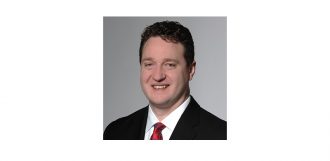
November 16, 2017
Harness IP Attorneys Interviewed by Law360 on Question of Art-Unit Shopping at the USPTO
Harness IP patent attorneys Monte Falcoff and Ravi Sinha are featured in a new Law360 article on the topic of potential art-unit shopping, the alleged practice of strategically writing patent claims and titles to steer them into different units of the United States Patent and Trademark Office where the allowance rates are more favorable.
The strategy is not entirely new. Patent attorneys have historically used it to move patent applications into areas with fewer backlogs or more allowance-friendly examiners, thereby streamlining the process to allowance. With the Supreme Court’s Alice decision in mind, Law360 was interested in learning if there has been an increase in art-unit shopping to help patent attorneys guide business method patents — innovations directed to e-shopping, finance, or banking, for example — toward examiners who are more likely to grant patents. Falcoff and Sinha put forth that they have not seen a significant increase in art-unit shopping after the Alice case.
An example patent application could place pure software claims in second or third independent claim sets, following an initial hardware claim set, which could steer the patent application toward more favorable art-units examining hardware. This practice, however, occurred both before and after Alice. There could be more motivation to do it now in an effort to avoid additional prosecution and appeal expenses of pure software art-units, but many patent attorneys tried to place such close-call applications in certain art units through strategic claim drafting even before the current situation.
Falcoff further noted that coverage of the client’s commercial product and realistic direct infringement blocking of competitors should be given precedence when drafting claims. “I don’t want the legal tail to wag the business dog on this,” Falcoff said, although he added that he appreciates the benefit of “being able to avoid the Alice quagmire.”
This is not to say that good patent attorneys view patent prosecution in the age of Alice as a sort of game, though. Sinha, a former patent examiner, put forth that examiners are able to reroute applications if they are too far outside their unit’s area of expertise. Some examiners may decide to examine the application if it fits the general framework of their area, although that is no guarantee of allowance.
…

